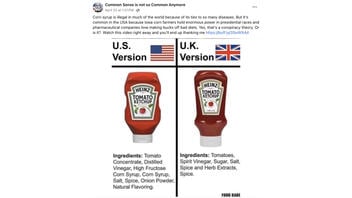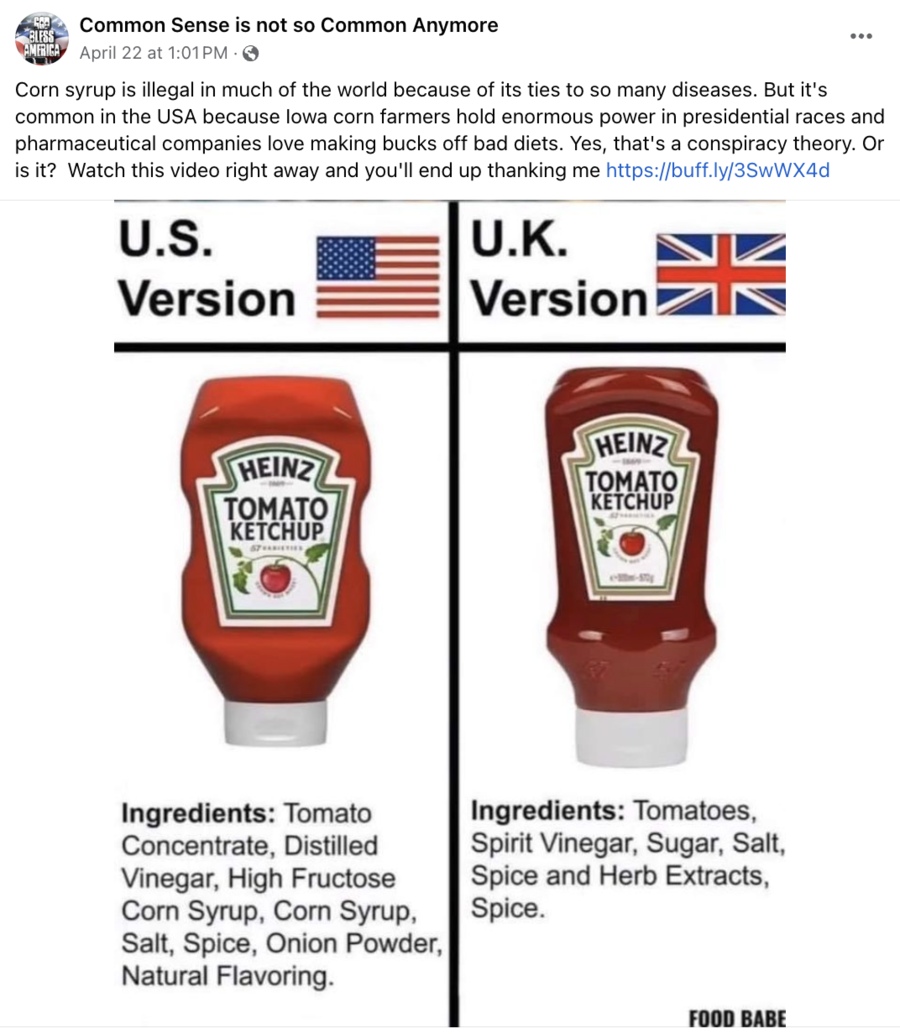
Is corn syrup "illegal in much of the world," as a post on Facebook claimed? No, that's not true: Lead Stories found no evidence that corn syrup is banned in any country. The claim stems from a common misconception that high fructose corn syrup is banned in the European Union, which is false. The sweetener was formerly regulated under a production quota that expired in 2017.
The claim appeared in a post on Facebook on April 22, 2024 (archived here), with a caption that read:
Corn syrup is illegal in much of the world because of its ties to so many diseases. But it's common in the USA because Iowa corn farmers hold enormous power in presidential races and pharmaceutical companies love making bucks off bad diets. Yes, that's a conspiracy theory. Or is it? Watch this video right away and you'll end up thanking me https://buff.ly/3SwWX4d
Below is how the post appeared at the time of writing:
(Source: Facebook screenshot taken on Wed Apr 24 20:28:10 2024 UTC)
High fructose corn syrup -- also known as isoglucose or glucose-fructose syrup -- was restricted in the European Union because it was formerly under a production quota (archived here) set forth during a 2013 agricultural reform to protect the European sugar industry, according to a 2015 analysis (archived here) published in the British Medical Journal. However, the reform expired in 2017, according to the European Parliament (archived here).
The National Library of Medicine describes (archived here) corn syrup as being:
... a viscous odorless colorless liquid. Denser than water. An aqueous solution of glucose, maltose and other substances derived by hydrolysis of cornstarch. Used as a sweetener in foods.
Corn syrup is the derivative of high fructose corn syrup (HFCS), which the U.S. Food and Drug Administration classifies (archived here) as "generally recognized as safe." The agency describes (archived here) the sweetener as being derived from cornstarch broken down into individual glucose molecules. Concerns over the safety of HFCS arose after studies showed that the sweetener can promote obesity more than regular sugar, according to the Cleveland Clinic Health Essentials (archived here).
Lead Stories found no evidence that either corn syrup or HFCS is illegal anywhere in the world.
The link in the post redirected users to an unrelated website (archived here) with a title page that had nothing to do with corn syrup. It read:
Top NASA Scientist: 'Edison's 7-Second Brain Trick Activates Your Superbrain'
Lead Stories has debunked other health-related claims, which can be read here.


















